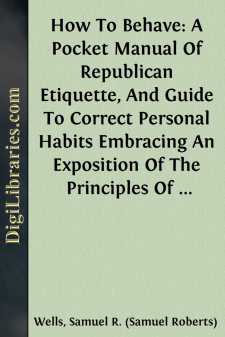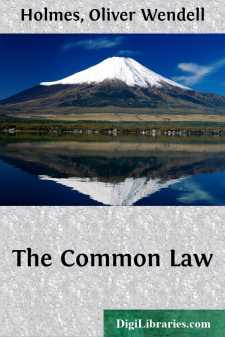Categories
- Antiques & Collectibles 13
- Architecture 36
- Art 48
- Bibles 22
- Biography & Autobiography 813
- Body, Mind & Spirit 142
- Business & Economics 28
- Children's Books 15
- Children's Fiction 12
- Computers 4
- Cooking 94
- Crafts & Hobbies 4
- Drama 346
- Education 46
- Family & Relationships 57
- Fiction 11828
- Games 19
- Gardening 17
- Health & Fitness 34
- History 1377
- House & Home 1
- Humor 147
- Juvenile Fiction 1873
- Juvenile Nonfiction 202
- Language Arts & Disciplines 88
- Law 16
- Literary Collections 686
- Literary Criticism 179
- Mathematics 13
- Medical 41
- Music 40
- Nature 179
- Non-Classifiable 1768
- Performing Arts 7
- Periodicals 1453
- Philosophy 64
- Photography 2
- Poetry 896
- Political Science 203
- Psychology 42
- Reference 154
- Religion 513
- Science 126
- Self-Help 84
- Social Science 81
- Sports & Recreation 34
- Study Aids 3
- Technology & Engineering 59
- Transportation 23
- Travel 463
- True Crime 29
How To Behave: A Pocket Manual Of Republican Etiquette, And Guide To Correct Personal Habits Embracing An Exposition Of The Principles Of Good Manners; Useful Hints On The Care Of The Person, Eating, Drinking, Exercise, Habits, Dress, Self-Culture,...
Description:
Excerpt
PREFACE.
his is an honest and earnest little book, if it has no other merit; and has been prepared expressly for the use of the young people of our great Republic, whom it is designed to aid in becoming, what we are convinced they all desire to be, true American ladies and gentlemen.
Desiring to make our readers something better than mere imitators of foreign manners, often based on social conditions radically different from our own—something better than imitators of any manners, in fact, we have dwelt at greater length and with far more emphasis upon general principles, than upon special observances, though the latter have their place in our work. It has been our first object to impress upon their minds the fact, that good manners and good morals rest upon the same basis, and that justice and benevolence can no more be satisfied without the one than without the other.
As in the other numbers of this series of Hand-Books, so in this, we have aimed at usefulness rather than originality; but our plan being radically different from that of most other manuals of etiquette, we have been able to avail ourself to only a very limited extent of the labors of others, except in the matter of mere conventional forms.
Sensible of the imperfections of our work, but hoping that it will do some acceptable service in the cause of good manners, and aid, in a humble way, in the building up of a truly American and republican school of politeness, we now submit it, with great deference, to a discerning public.
ome one has defined politeness as "only an elegant form of justice;" but it is something more. It is the result of the combined action of all the moral and social feelings, guided by judgment and refined by taste. It requires the exercise of benevolence, veneration (in its human aspect), adhesiveness, and ideality, as well as of conscientiousness. It is the spontaneous recognition of human solidarity—the flowering of philanthropy—the fine art of the social passions. It is to the heart what music is to the ear, and painting and sculpture to the eye.
One can not commit a greater mistake than to make politeness a mere matter of arbitrary forms. It has as real and permanent a foundation in the nature and relations of men and women, as have government and the common law. The civil code is not more binding upon us than is the code of civility. Portions of the former become, from time to time, inoperative—mere dead letters on the statute-book, on account of the conditions on which they were founded ceasing to exist; and many of the enactments of the latter lose their significance and binding force from the same cause. Many of the forms now in vogue, in what is called fashionable society, are of this character. Under the circumstances which called them into existence they were appropriate and beautiful; under changed circumstances they are simply absurd. There are other forms of observances over which time and place have no influence—which are always and everywhere binding.
Politeness itself is always the same. The rules of etiquette, which are merely the forms in which it finds expression, vary with time and place. A sincere regard for the rights of others, in the smallest matters as well as the largest, genuine kindness of heart; good taste, and self-command, which are the foundations of good manners, are never out of fashion; and a person who possesses them can hardly be rude or discourteous, however far he may transgress conventional usages: lacking these qualities, the most perfect knowledge of the rules of etiquette and the strictest observance of them will not suffice to make one truly polite.
"Politeness," says La Bruyère, "seems to be a certain care, by the manner of our words and actions, to make others pleased with us and themselves." This definition refers the matter directly to those qualities of mind and heart already enumerated as the foundations of good manners....












